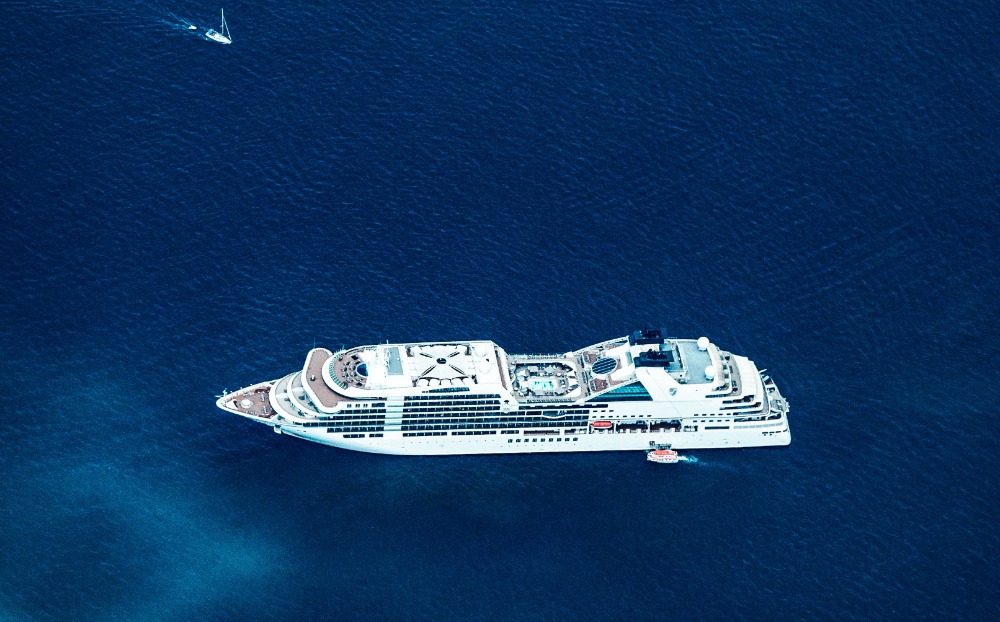An increase in cruise-ship crew applying for superyacht roles
How should the industry respond to this trend brought about by the pandemic?
The coronavirus pandemic has devastated the cruise-ship sector, with widespread disruption and cancellations leaving thousands of cruise-ship crew without work and no date to return. Consequently, these crew have been exploring alternative avenues, and a natural move for many has been towards the superyacht industry. Recruitment agencies in the industry are reporting a significant increase in job applications across all departments from crew with backgrounds on cruise ships.
“The cruise-ship industry is looking to restart, but most companies will be starting with a smaller fleet, so there are definitely crew who are unsure if they’re going to go back to cruise ships, particularly on the hotel side, but even those with technical experience,” says Paul Rutterford, operations director at Viking Crew. “There’s a perception that the yachting industry hasn’t been affected by the pandemic and is, therefore, seen as a strong employment option.”
While the superyacht industry has, of course, been hit by the pandemic, albeit to a lesser extent than other industries, an influx of cruise-ship candidates may be of great benefit as many will have highly desirable skills and qualifications. On the deck and engineering side, most officers from a cruise background will have an unlimited ticket, so will be fully qualified for a role within their rank on a yacht – a significant advantage for their job search. “Especially on the engineering front,” says Laurence Lewis, director at YPI Crew. “These candidates have high certificates to operate cruise ships and their skills are sought after.”
Rutterford adds, “They are going to have lots of training that is, in many ways, more than what they will need on yachts. For example, if you work for a big cruise company, you might have done some bridge resource management training, which is all about team-building. A yacht won’t have a team as big as that but all of that training is still going to be valuable.”
John Wyborn, director at Bluewater, cautions that, if these crew haven’t any previous yachting experience, one area in which deck officers might be lacking is boat-handling. “Officers who have worked their way up on a superyacht have normally done a lot of tender driving and operations, and are usually good boat-handlers when it comes to berthing the yacht,” he says. “Some merchant navy officers, by contrast, don’t always have as much experience in ship-handling because much of this is done by harbour pilots and tugs.”
With a growing number of boutique luxury cruise ships taking to the water prior to the pandemic, the gap between the service provided on board the top-end cruise ships and superyachts is narrowing...
There are other factors to consider for those cruise-ship crew applying for interior roles. With a growing number of boutique luxury cruise ships taking to the water prior to the pandemic, the gap between the service provided on board the top-end cruise ships and superyachts is narrowing. Peter Vogel, founder and managing director of Luxury Hospitality, previously worked as a butler and steward on board both luxury cruise ships and superyachts for more than 20 years. For him, the key difference between interior crew from the cruise-ship industry and those in the superyacht industry is their hospitality training.
“The cruise-ship companies have serious training programmes and so a lot of these crew are trained to the max,” says Vogel. “The cruise-ship industry doesn’t accept people without training, whereas the yachting industry accepts anyone and mostly selects on attitudes and characteristics – for example, whether someone is going to click with the crew – and trains them on board. Superyachts don’t specifically look for a hotel or restaurant background, and so the people that are now going to come in from the cruise industry will bring experience and skill with them, which is very much needed.”
Another big difference between the two industries with regards to interior crew is that cruise-ship crew will have very specialist experience (as a bartender or housekeeper, for example), whereas they will need to do a bit of everything on a yacht. “In that sense, there’s definitely some learning that they would need to do in the superyacht environment,” adds Wyborn.
While cruise-ship crew may have a range of advantageous skills and training that could be transferable into yachting, there are also may be challenges. As well as receiving a significant increase in the number of registrations from cruise-ship crew, Yotspot had many of them ask for advice and clarification on how to transition across. Daryl Bradley, director of Yotspot, explains that most of these discussions focus on expectations versus reality.
“Some of them think yachting is an easy option, so we need to manage those expectations,” says Bradley. “Working in yachting can be far harder than commercial. On a cruise ship, officers have their own cabins and you know exactly when you’re going to be home. A lot of the people I spoke to also expected a three-months-on, three-months-off contract, so we have been trying to explain that there are very few rotational roles in yachting compared to the cruise industry, especially since the pandemic. It is a fantastic industry to work in and the rewards are there, but there needs to be a level of flexibility and a level of hospitality in their nature. It’s very difficult to just pick and choose a role in an industry that is already oversubscribed.”
“Cruise-ship crew have such in-depth training and they would bring an awful lot of skills and knowledge with them into yachting, which is really good for the industry...”
While there’s always been an intake of crew from the commercial and cruise industries to superyachts, the pandemic presents a significant opportunity for the industry to attract talented and career-minded crew from a commercial or cruise background who are out of work now through no fault of their own. As such, it’s important that the industry recognises their strengths and takes advantage of this moment in time.
“It’s a fantastic development and long overdue,” says Vogel. “Bringing this experience from the service side or the room-attendant side is only going to benefit our industry. When they come on board, we will obviously still need to fine-tune them and help them to understand what yachting is all about. But at the same time, they will have a quicker onboarding because we don’t have to teach them how to carry plates or serve people.”
“Cruise-ship crew have such in-depth training and they would bring an awful lot of skills and knowledge with them into yachting, which is really good for the industry,” agrees Wyborn. “But they don’t have the full package – they won’t know how to keep a top coat looking amazing, how to varnish or how to drive a tender unless they have had a lot of watersports experience in their private lives.”
However, to make the most of this opportunity there needs to be a shift in mindset towards recruiting crew from outside the industry. Wyborn adds that many captains don’t even think about hiring crew from other sectors. “They’ll look at whether they’ve got the necessary paperwork rather than looking at what their experience actually is and what that might mean if they were to transfer into yachting. A lot of these candidates from other industries won’t have the full package but it’s important to recognise their transferable skills.”
Vogel concludes, “I wish recruiters and captains would be more openminded to proper hospitality experience and bring that into our industry, because we desperately need more. We currently have a great industry that is working, but it can be improved. I just hope that the pandemic has actually opened up a lot of people’s eyes and is making them realise that we can change and improve things if we would just look outside our industry.”
This is a preview of an article that appears, in full, in the recently-published The Superyacht Captains Report. To access The Superyacht Captains Report and be part of The Superyacht Group Community, please click here.
Profile links
NEW: Sign up for SuperyachtNewsweek!
Get the latest weekly news, in-depth reports, intelligence, and strategic insights, delivered directly from The Superyacht Group's editors and market analysts.
Stay at the forefront of the superyacht industry with SuperyachtNewsweek
Click here to become part of The Superyacht Group community, and join us in our mission to make this industry accessible to all, and prosperous for the long-term. We are offering access to the superyacht industry’s most comprehensive and longstanding archive of business-critical information, as well as a comprehensive, real-time superyacht fleet database, for just £10 per month, because we are One Industry with One Mission. Sign up here.
Related news
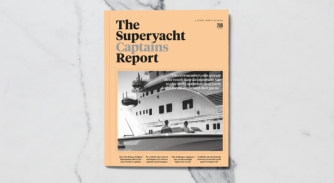
The Superyacht Captains Report
Out now, The Superyacht Captains Report tackles the most pertinent issues for superyacht crew today
Crew

COVID-19 vaccinations for superyacht crew
Some owners are requesting crew are vaccinated and making their continued employment contingent on it
Crew
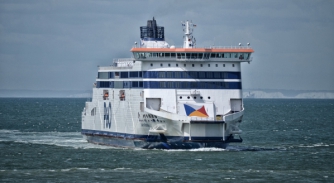
In the engine room: from ferries to superyachts
Engineer Josh Chapman discusses his transition from P&O Ferries to yachting in light of the pandemic
Crew
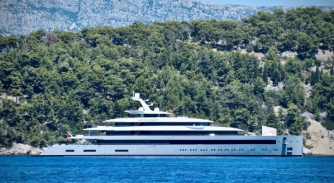
Increasing number of crew looking to unlimited certification
One such crewmember discusses the condensed experienced-seafarer route to an OOW Unlimited ticket
Crew

Managing crew welfare on M/Y Starfire
Captain Paul Duncan reflects upon the on-board mental health challenges caused by the pandemic
Crew
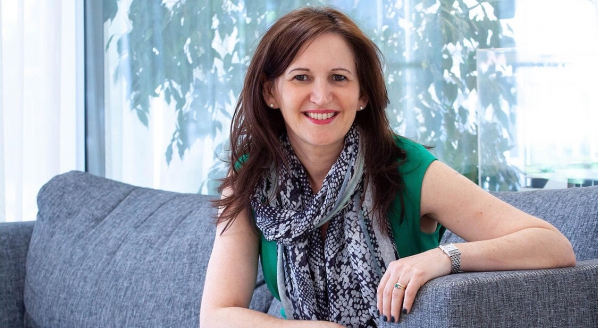
The impact of COVID-19 on crew recruitment in 2020
Laurence Lewis, director of YPI Crew, on the effects COVID-19 and her predictions for the year ahead
Crew
Related news
The Superyacht Captains Report
5 years ago
COVID-19 vaccinations for superyacht crew
5 years ago
In the engine room: from ferries to superyachts
5 years ago
Managing crew welfare on M/Y Starfire
5 years ago
NEW: Sign up for
SuperyachtNewsweek!
Get the latest weekly news, in-depth reports, intelligence, and strategic insights, delivered directly from The Superyacht Group's editors and market analysts.
Stay at the forefront of the superyacht industry with SuperyachtNewsweek


